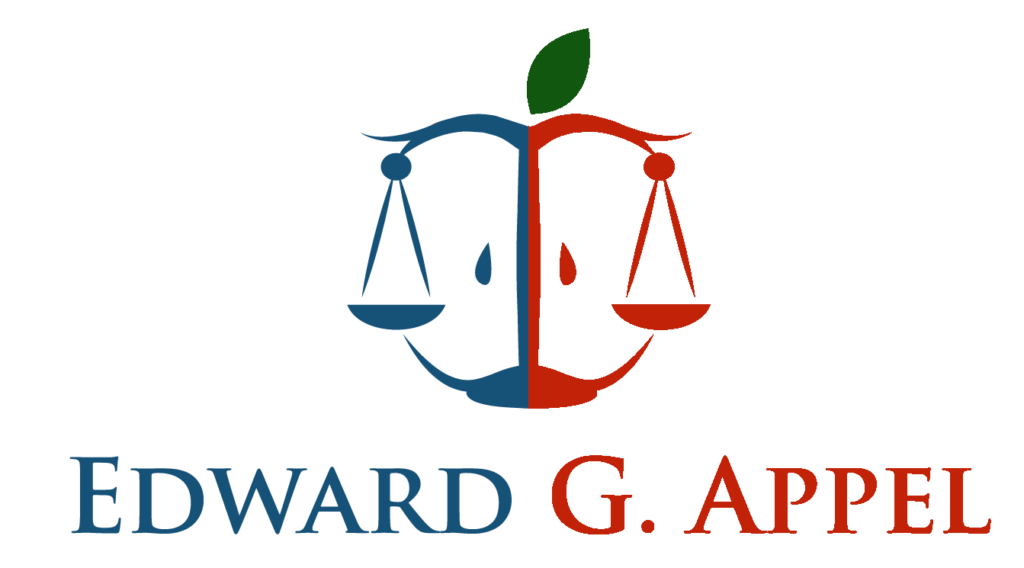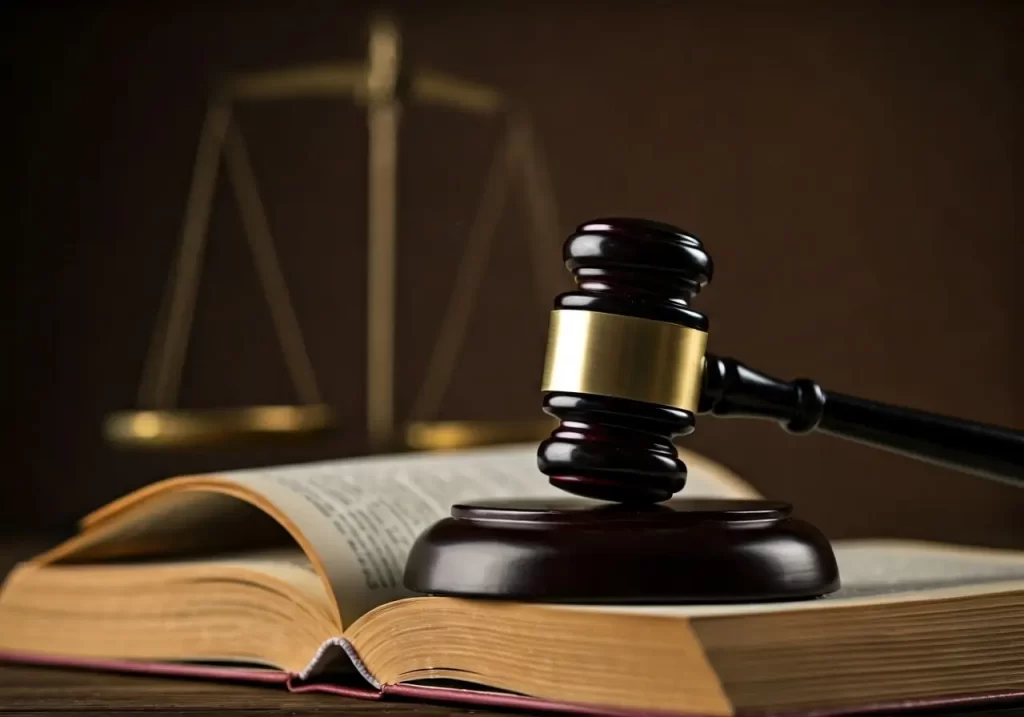Navigating the legal labyrinth of a DWI charge can be daunting, especially when you’re searching for the right legal representation. In South Jersey, hiring a DWI lawyer who meets your needs is crucial. Avoiding common pitfalls can make the difference between a favorable outcome and a prolonged legal battle. Let’s explore the key errors to steer clear of when selecting a DWI lawyer.
1. Overlooking Local Expertise
Hiring a lawyer unfamiliar with South Jersey’s local laws and court systems can be a major misstep. Local expertise can provide an advantage in navigating the specifics of regional legal procedures. A lawyer deeply embedded in the community understands not only the letter of the law but also the nuances of local protocol and practices, which can influence court rulings. They may have established relationships with judges and prosecutors, offering insights or strategies that outsiders might miss. Ignoring this aspect of legal representation could result in overlooking crucial elements that could strengthen your defense.
Moreover, a locally experienced lawyer is likely to be updated on any recent changes or trends in the state’s DWI laws that may impact your case. In New Jersey, where legal statutes can be intricate and multifaceted, having someone who knows the lay of the land can be quite beneficial. Choosing a DWI lawyer in South Jersey with profound local knowledge ensures you’re not only getting representation but also someone who can navigate the legal terrain with confidence and agility. Remember, legal issues are complex, and the stakes are too high to gamble on generalists when specialists are available.
2. Ignoring Specialization in DWI Cases
Not all lawyers are created equal, and hiring someone who lacks direct experience in DWI cases can limit your defense options. Choose a lawyer who specializes in DWI to ensure they have the necessary knowledge and skills. Specialization plays a critical role when dealing with intricate aspects of DWI law. Lawyers who dedicate their practices to this area have a more profound understanding of the technicalities, such as breathalyzer tests, field sobriety tests, and procedural issues that might not be apparent to an attorney with a broader focus.
Additionally, a specialized lawyer is likely to have dealt with numerous DWI cases, giving them experience in crafting innovative strategies and approaches tailored to the unique aspects of these offenses. As cited by legal experts, specialized attorneys are better equipped to identify weaknesses in the prosecution’s case, potentially leading to a dismissal or reduction of charges source. Avoiding this common mistake allows you to capitalize on their expertise, which can be a pivotal factor in achieving a positive outcome.
3. Focusing Solely on Cost
While it’s important to consider costs, making a decision based solely on attorney fees can lead to poor representation. Balance affordability with experience and expertise. Cost should be a factor, not the deciding one, when selecting a lawyer. Many tend to go for the cheapest option without realizing that the lower cost could reflect lesser experience or attention to detail.
Consider the adage, ‘You get what you pay for.’ A higher fee could mean a lawyer with a wealth of experience, richer resources, or more time to dedicate to your case. While you shouldn’t break the bank, it’s crucial to invest in someone who can genuinely improve your chances in court. We offer competitive pricing that balances cost and quality, ensuring you receive stellar service without overextending your finances.
4. Failing to Check Credentials
Verifying a lawyer’s credentials and reputation is crucial. Ensure they are licensed to practice in New Jersey and have a good standing with the local bar association. Checking credentials goes beyond just seeing if a lawyer is licensed. You should also look into their educational background, professional affiliations, and any ongoing training or certifications specific to DWI/DUI laws.
Engage with the state bar’s resources to determine if there have been any disciplinary actions against them or ethical violations. Transparency in credentials establishes not just a baseline of professionalism, but also a sense of trust that your case is in competent hands. By taking these extra steps, you enhance the likelihood of engaging a trustworthy advocate for your affairs, providing peace of mind that your chosen representative is both ethical and experienced.
5. Neglecting to Ask About Their Success Rate
Understanding a lawyer’s track record with DWI cases can give you insight into their capability. Don’t hesitate to inquire about their previous successes and case outcomes. A competent lawyer will be transparent about both their success stories and any significant challenges they have confronted.
Most importantly, query their strategies that led to those successes. Do they possess innovative ways to challenge DWI charges, such as questioning the validity of field sobriety tests, or negotiating plea deals that minimize penalties? Asking these questions not only provides a sense of their competence but also their commitment to fighting for their clients.
6. Disregarding Communication Style
Communication is key in legal matters. Choose a lawyer whose communication style aligns with your preferences, ensuring you feel comfortable and informed throughout the process. A lawyer who is adept at breaking down complex legal jargon into understandable language can make the experience less stressful and more informative.
Consider how frequently the lawyer updates you on your case’s progress and their openness to discussions about potential outcomes and strategies. A lawyer’s ability to listen and respond to your concerns is vital. This collaborative approach fosters confidence and clarity, helping you feel supported, especially during the more taxing stages of legal proceedings. Prioritizing open dialogue ensures both transparency and satisfaction in the representation you receive.
7. Overlooking Client Reviews
Client reviews can provide valuable insights into a lawyer’s reliability and effectiveness. Check online reviews and testimonials for additional perspectives. A history of satisfied clients often suggests capable, trustworthy service, while consistently negative feedback can be a red flag.
Sites like Avvo and Yelp, albeit external, can offer honest appraisals based on previous clients’ experiences. Seek patterns in the feedback—are clients praising prompt communication and successful outcomes or highlighting a tendency for missed deadlines and unmet promises? Such insights can empower you to make an informed decision, steering you towards a lawyer whose past conduct aligns with your expectations.
8. Failing to Clarify Case Strategies
Discussing potential strategies with your lawyer can prevent misunderstandings. Ensure they have a clear plan tailored to your specific case details. Each case is unique and requires a bespoke approach, tailored to its particular nuances.
A competent lawyer should outline possible strategies they intend to employ, whether it’s negotiating lesser charges, challenging breath test accuracy, or preparing for a trial. Not having this discussion may leave both parties with different expectations, which can affect the case’s trajectory. Transparency around strategy solidifies the lawyer-client relationship and establishes a clear roadmap forward, minimizing unwelcome surprises during legal proceedings.
9. Skipping the Initial Consultation
An initial consultation is an opportunity to assess if a lawyer is the right fit. Don’t skip this step, as it can provide critical insights into their approach and compatibility. This first meeting should be utilized to assess their demeanor, professionalism, and understanding of your case specifics.
Prepare a list of questions in advance, focusing on aspects like their experience, typical case outcomes, and fee structures. It’s during this consultation that you often get a real sense of their case management style and whether they appreciate the unique challenges you’re facing. Remember, the consultation is not just for them to evaluate you as a client; it’s a mutual evaluation to help you determine if this legal partnership meets your needs and expectations.
10. Not Discussing Fees Clearly
Understanding the fee structure upfront can prevent future disputes. Be clear on what is included in your legal fees to avoid unexpected costs. Ask whether the fee covers court appearances, consultations, and any ancillary services.
Inquire about the payment schedule and if there are any additional charges that may arise as the case progresses. Clarifying these matters can prevent unwelcome surprises and ensure your legal budget remains intact, providing peace of mind and allowing focus on your defense. At South Jersey DUI, we believe in transparent and straightforward pricing, ensuring our clients are fully informed from the outset. This policy underscores our commitment to ethical practice and client satisfaction.
11. Rushing the Decision
Taking the time to research and interview potential lawyers is crucial. Rushing the selection process can lead to poor choices and unfavorable outcomes. Choosing a skilled attorney takes careful consideration, as this decision hugely impacts the trajectory of your case.
Pressure to make a quick decision often stems from stress and time constraints, but a hasty choice can overlook critical factors like expertise and communication style. Therefore, consider meeting with several lawyers to understand the diversity in service offerings and strategies. Adequate due diligence secures informed decisions, inspires confidence, and strengthens your resolve as you navigate the legal process.
12. Choosing Based on Marketing Alone
While strong marketing can be impressive, it doesn’t guarantee competence. Look beyond advertisements to evaluate a lawyer’s true capabilities. Ad campaigns may paint a rosy picture, but the substance behind the marketing—such as real-world outcomes and client satisfaction—is paramount.
Research thoroughly, including case history and professional credentials. Engage with former clients, if possible, to gauge how their experience aligned with marketing promises. Scrutinizing these facets offers a comprehensive view of what to realistically expect, rather than buying into perceived images constructed by savvy marketers.
13. Ignoring Red Flags
Pay attention to any red flags during your interactions, such as lack of responsiveness or reluctance to discuss your case specifics. These can indicate larger issues. If a lawyer is evasive about their approach or fees, this could foreshadow the type of engagement you might continue to have.
Also, consider any discomfort in your interactions. If a lawyer makes you feel ill at ease, that’s an emotional warning sign you shouldn’t ignore. Listen to your instincts; they often signal potential roadblocks that can impede the flow of your case or create unnecessary tension. The professional bond between client and attorney is one hinged on trust and confidence. Thus, establishing this foundation is crucial for a cooperative and productive partnership.
14. Foregoing a Second Opinion
When unsure, seeking a second opinion can provide valuable clarification. It allows you to compare different perspectives and make a more informed decision. Opting for an additional consultation can broaden your understanding of potential strategies or highlight considerations you had not previously accounted for.
There’s immense value in contrasting different approaches and gauging which resonates better with your case and expectations. This comparison isn’t necessarily an indication of mistrust, but rather a desire for due diligence in ensuring that all possible avenues are explored. Engage with multiple qualified lawyers, evaluating differences in experience and strategies, in order to align with the best-suited advocate for your needs.
15. Underestimating the Importance of a Good Fit
Personal rapport with your lawyer can greatly affect your experience. Ensure your personalities and communication styles are compatible for a smoother process. A lawyer who can relate to your concerns and who appreciates the personal stresses related to your legal predicament can offer not just legal support but emotional assurance as well.
Compatibility builds trust, making communication candid and more effective. When both parties feel comfortable, issues can be addressed more openly and efficiently, ultimately fostering a stronger defense. Don’t underestimate the power of a good relationship—it transforms the stressful journey of legal challenges into a manageable, navigable path, backed by an ally who genuinely supports your best interests.


